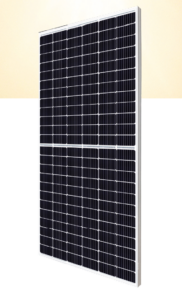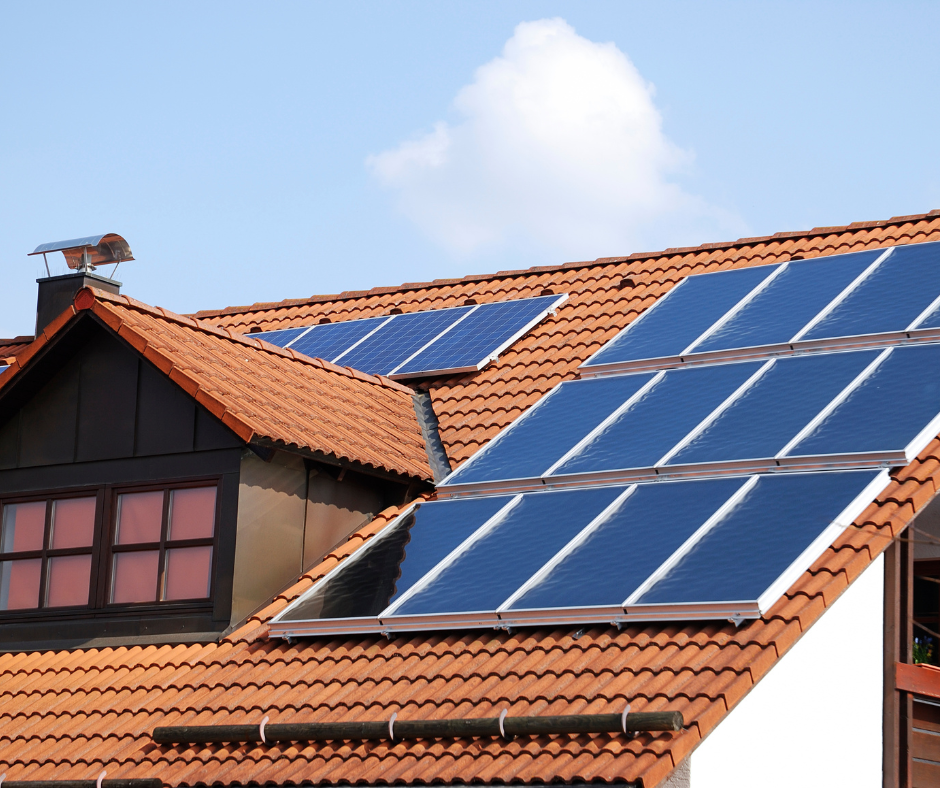From July, all of our new homes will be fitted with solar panels to provide potential energy savings and compliance with the latest Building Regulations.
Introduction
Solar panels are a great way of reducing your electricity bills. The system installed as part of your new home has been designed in order to meet stringent building regulations and to contribute towards energy used. It will not meet all your energy demands and its performance is also reliant on seasonal daylight / sunshine levels and orientation.
What are solar panels?
Solar panels are made of photovoltaic (PV) cells, which turn sunlight into electricity. This electricity can then be fed into your home’s mains electricity supply.

How do solar panels work?
Solar panels are an environmentally friendly way of producing electricity for your home. As mentioned above, the technology relies on PV cells to turn sunlight into electricity.
The electricity produced by your solar panels will be used to power any appliances currently in use within your home. Any electricity which is not used will be sent to the grid.
So, in essence, solar panels work by producing extra energy which either gets used by you, or gets sent to the grid. Any electricity you consume which is in excess of what your panels are producing will be sourced from the grid.
Is it sunny enough for solar power to be generated in the UK?
Yes. While it is true that the UK isn’t exactly bathed in sunshine, solar panels, despite their name, don’t need direct sunlight – they also work in cloudy or overcast weather.
However, cloudy or foggy weather diminishes the generating capacity of panels in comparison to direct sunlight.
Will the quality of my electricity be affected?
No, you won’t notice any difference. If the panels aren’t producing much electricity, you’ll just use electricity from the grid instead.
Solar panels don’t replace the energy you currently use, they simply supplement them with power from a greener source when possible. Conversely, if you generate too much electricity you may be able to sell the energy back to the national grid through the Smart Export Guarantee (SEG). More on this later.
There is no solar battery storage included in your installation but the system could be modified to include battery storage if required in the future by an MCS certified installer.
Do I have to switch the panels on each day?
No, they are always on. An inverter, located in your roof space will convert the energy produced by the panels for use in your home.
How long do solar panels last for?
Solar panels usually have a 25 year manufacturers guarantee. Information will be included in your handover pack. This is a guarantee covering the product, not the installation which is covered under your building warranty (NHBC for example) for a period of two years.
Will I have an installation certificate for my solar panels?
Yes, we provide a MCS Certificate (Microgeneration Certification Scheme). MCS is a nationally recognised quality assurance scheme, supported by the Department for Business, Energy and Industrial Strategy.
Do I need to maintain and service my solar panels?
Yes, to make sure your solar panels work effectively and to retain your warranty, they should be maintained and serviced in accordance with the manufacturers recommendations.
Could I install additional solar panels to my roof in the future?
In addition to any planning permissions or legal requirements, we will also need to give approval for the change. Full details of the proposed change should be sent to our Spalding office who will advise you further. A consent fee may be applicable to each application.
We strongly recommend that your chosen installer is MCS accredited. Their installers are obliged to check the structural integrity of your roof to withstand any additional loading from roof mounted panels.
Furthermore, you will only be able to register for the Smart Export Guarantee if you have a MCS installation certificate.
How can I make the most of the free electricity from my solar panels?
To make sure you use as much of the free electricity from your solar panels as possible you need to try and use electricity during the day, when your panels are producing more electricity.
You could try:
- Putting your washing machine, tumble drier and dishwasher on during the day.
- Charging mobile phones, laptops and other gadgets during the day and using their battery power at night.
- Using an electric slow cooker to cook your food during the day.
How does this work with my gas and electricity supplier?
Nothing will change, except you may pay less for your bills. If you wish to take advantage of the Smart Energy Guarantee mentioned earlier (SEG) please read on for further information as this can only be set up by you as the customer, not the installer or builder.
Please contact your energy supplier for guidance as procedures and offers will vary between companies. Not all energy suppliers offer SEG tariffs.
Export Payments (Smart Energy Guarantee)
With any domestic PV installation, there will be times when the electricity you generate is more than you can generate or store, so the surplus will be exported to the grid to be used by somebody else. If you want to be paid for exporting, you need to make sure you are getting an export payment.
Following the closure of the Feed in Tariff scheme in March 2019, the Smart Export Guarantee (SEG) was introduced to provide financial support to small scale energy generators for the energy they export to the grid. The savings from solar PV with the SEG are considerably higher than without it.
Under the scheme, all licenced energy companies with 150,000 or more customers must provide at least one SEG tariff. Smaller suppliers can offer a tariff if they want to on a voluntary basis.
Suppliers may ask you to provide a copy of your MCS certificate to prove the installation meets the required standards. You will also need a registered smart meter that records your exported electricity, even if you are not signing up to a smart tariff – this type of meter has been fitted as standard to your new home.
How much will I receive for exporting electricity?
There are no set or minimum tariffs for the SEG – the only requirement is that the tariff must be greater than zero at all times. In practice, this means that it is up to energy suppliers to decide what tariffs to offer their customers. They may choose to offer multiple tariffs or just one.
SEG tariffs can be fixed or variable. A fixed SEG tariff will pay a determined rate per KWh of electricity exported over the length of a contract. A variable SEG tariff will vary the price based on market demand, with the only requisite that prices never fall below zero.
Ofgem produces a list of SEG licensees every year. You should contact the energy supplier directly for information on their available SEG tariffs.


